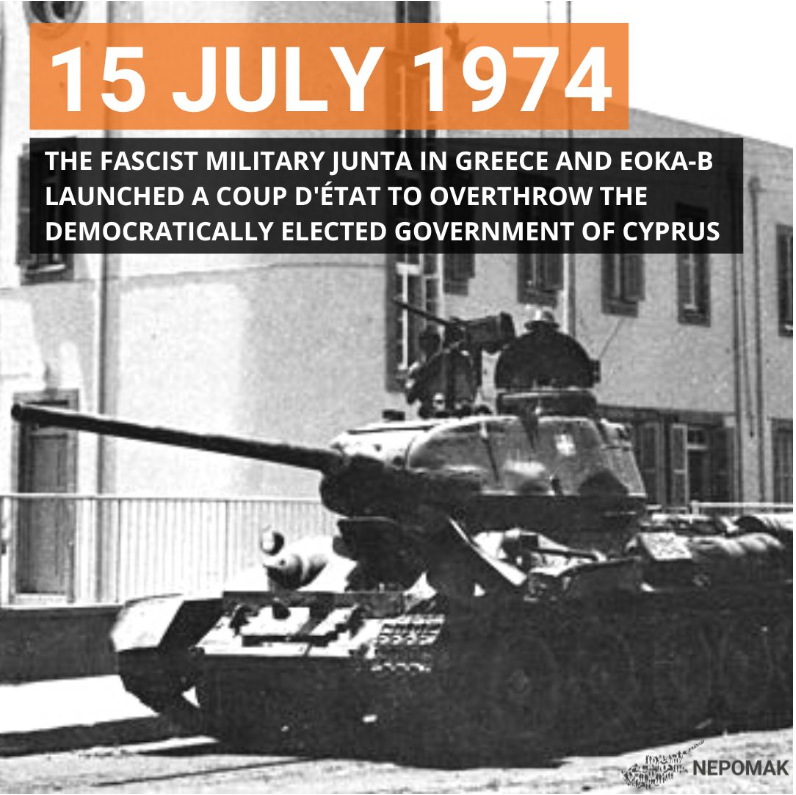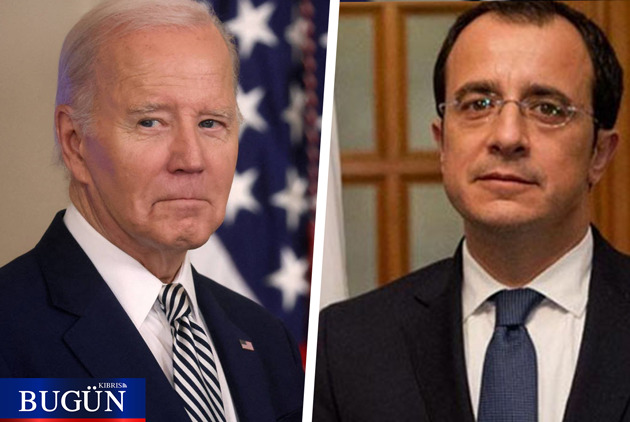In reality, the problem that lies at the root of the Cyprus problem and needs to be solved is the problem of ‘trust’.
The number of Turkish Cypriots who sincerely trust the Greek Cypriots and Greeks is almost negligible.
The roots of this mistrust go back to the early 20th century, but if we leave the past in the past and return to the present, we see that nothing has changed since then.
As you know, the Greek Cypriots prevent all kinds of initiatives that will mention the name of the TRNC, that will bring the TRNC to the top and that will give the Turkish Cypriots a breath of fresh air. This includes touristic visits, economic and scientific activities.
The Greek Cypriots are doing their best to isolate from the world the state that the Turkish Cypriots, who were subjected to a genocide between 1955 and 1974, similar to the genocide in Gaza today, managed to establish – as a result of their liberation in 1974 with the help and support of the motherland Turkey -.
The Greeks, who have been terminating the negotiations that have been going on since 1968 to establish a so-called common state with the Turkish Cypriots, each time with a megalomaniacal attitude and with lame excuses, overturning the table and leaving, today, as if they were not the ones who left the negotiation table, they are trying to get the Turkish Cypriots to sit at the table, they are travelling from door to door and trying every way to put pressure on Turkey and the Turkish Cypriots.
Recently, they did everything in their power to prevent our President Ersin Tatar from travelling to Australia and meeting with Australian local administrators and government members.
They tried to do so, but this time they were not successful and for the first time a TRNC President was welcomed, hosted and visited Australia as ‘President’, even if not officially.
The Greek Cypriots, who prevented the Turkish Cypriots from participating in international sports competitions, prevented the Turkish Cypriots from connecting to the world with direct flights, prevented the Turkish Cypriots from becoming an ‘observer’ member of the Organisation of Turkic States established by states of Turkish descent, and plotted all kinds of intrigues to prevent the Turkish Cypriots from establishing academic, commercial, industrial, social and cultural ties with the states of the world, have run out of credit, and it has become impossible for them to expect love and respect from the Turkish Cypriots.
Although the UN representatives meet with the anti-TRNC people in the TRNC and present them as the general opinion of the Turkish Cypriots, the vast majority of the Turkish Cypriots do not want to establish a common state with the Greek Cypriots, who have been carrying out armed, economic and political attacks to destroy them for the last century, and where they will be relegated to minority status like the Maronites, Armenians and Latins after a while.
The inhumane practices of the Atlantic Alliance, which isolates them from the world and does not recognise laws and rules, has been a great lesson to the Turkish Cypriots about who they can trust.

The Atlantic Alliance, which has been providing financial and arms support to the terrorist formation operating under the names of PKK, YPG and similar names in the territory of North East Syria for years, is now trying to give legal status to their existence by supporting them to hold local elections illegally, but unfortunately, it has not imposed any sanctions to be taken seriously on the rulers of the ‘Hellenic Republic of Cyprus’, Greek Cypriots and Greece, who declared the ‘Hellenic Republic of Cyprus’ by overthrowing the internationally recognised ‘Republic of Cyprus’ by staging a coup d’état in Cyprus on 15 July 1974 and declared the ‘Hellenic Republic of Cyprus’ and announced the annexation of the island of Cyprus to Greece the next day. (Turkey, which saved the Turkish Cypriots from genocide and extinction, was subjected to an ‘arms and financial embargo’ immediately after the 1974 Peace Operation). In the United Nations Organisation, of which they are the protector and founder, they took the decision dated 18 November 1983 and numbered 541, which is a disgrace to humanity, isolating the Turkish Cypriots from the world.
Now, while they are trying to illegally create a terrorist state in North East Syria, which will be completely under their control, I leave it to you to interpret the aim of bringing together two communities that have fought each other and whose anger has not subsided on the island where the world’s longest-lasting conflict is taking place, and giving the administration to the Greeks. Here, there is a 41-year-old state with all its institutions – not counting the Federated State – and there is an attempt to have terrorists establish a state there!
What kind of global justice is this? Who, why and how should we trust?
Prof. Dr. (Civil Engineer), Assoc. Prof. Dr. (UA. Relations) Ata ATUN
Member of the Advisory Board of the TRNC President
TRNC Republican Assembly 1st Term Deputy


